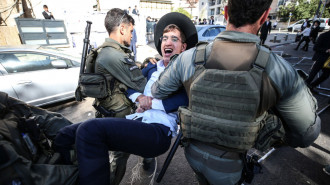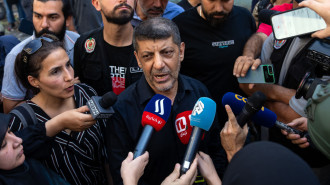Afghan forces battle to thwart Taliban assaults on key cities
Afghan government forces struggled against Taliban assaults on several major cities on Sunday as the insurgents stepped up a nationwide offensive that saw a key airport in the south come under rocket fire overnight.
Fighting has surged in the months since early May when US-led foreign forces began a final withdrawal from Afghanistan that is now almost complete.
After seizing large tracts of rural territory and capturing key border crossings, the Taliban have now started to besiege provincial capitals.
Flights out of Kandahar, Afghanistan's second-largest city, were halted after rockets struck the airport before dawn.
Airport chief Massoud Pashtun said two rockets had hit the runway and repairs were underway with planes likely to resume service later on Sunday.
The facility is vital to providing the logistical and air support needed to keep the Taliban from overrunning the city, while also providing aerial cover for large tracts of southern Afghanistan.
The attack came as the Taliban inched closer to overrunning at least two other provincial capitals, including nearby Lashkar Gah in Helmand province.
"Fighting is going on inside the city and we have asked for special forces to be deployed in the city," Ataullah Afghan, head of Helmand provincial council, told AFP.
Afghan security forces have increasingly relied on air strikes to push the militants back from cities even as they run the risk of hitting civilians in heavily populated areas.
"The city is in the worst condition. I do not know what will happen," said Halim Karimi, a resident of Lashkar Gah.
"Neither the Taliban will have mercy on us, nor will the government will stop bombing."
Further west in the city of Herat, fighting continued on the city's outskirts overnight with air strikes on Taliban positions.
Herat provincial governor's spokesman Jailani Farhad said that around 100 Taliban fighters had been killed in the attacks.
Both the Taliban and government forces exaggerate their claims of casualties inflicted on each other's forces and true counts are difficult to independently verify.
For months, the Taliban's territorial gains during the final stages of the US military withdrawal have largely been in sparsely populated rural areas.
But in recent weeks they have brought increasing pressure on provincial capitals and seized key border crossings.
The capture of any major urban centre would take their current offensive to another level and fuel concerns that the army is incapable of resisting the Taliban's battlefield advances.
The government has repeatedly dismissed the Taliban's steady gains over the summer as lacking strategic value.
In recent weeks the Afghan government's air force has provided Kabul with its biggest battlefield advantage over the Taliban and has so far largely kept the insurgents from overrunning urban areas.
![Afghan government forces were battling to stop Taliban assaults on major towns [Getty]](/sites/default/files/styles/large_16_9/public/2021-08/GettyImages-1234338900.jpg?h=199d8c1f&itok=us_0jIiO)






 Follow the Middle East's top stories in English at The New Arab on Google News
Follow the Middle East's top stories in English at The New Arab on Google News


